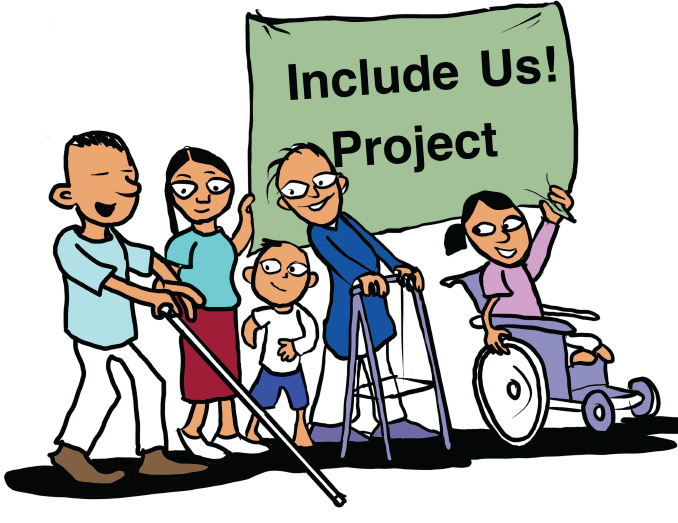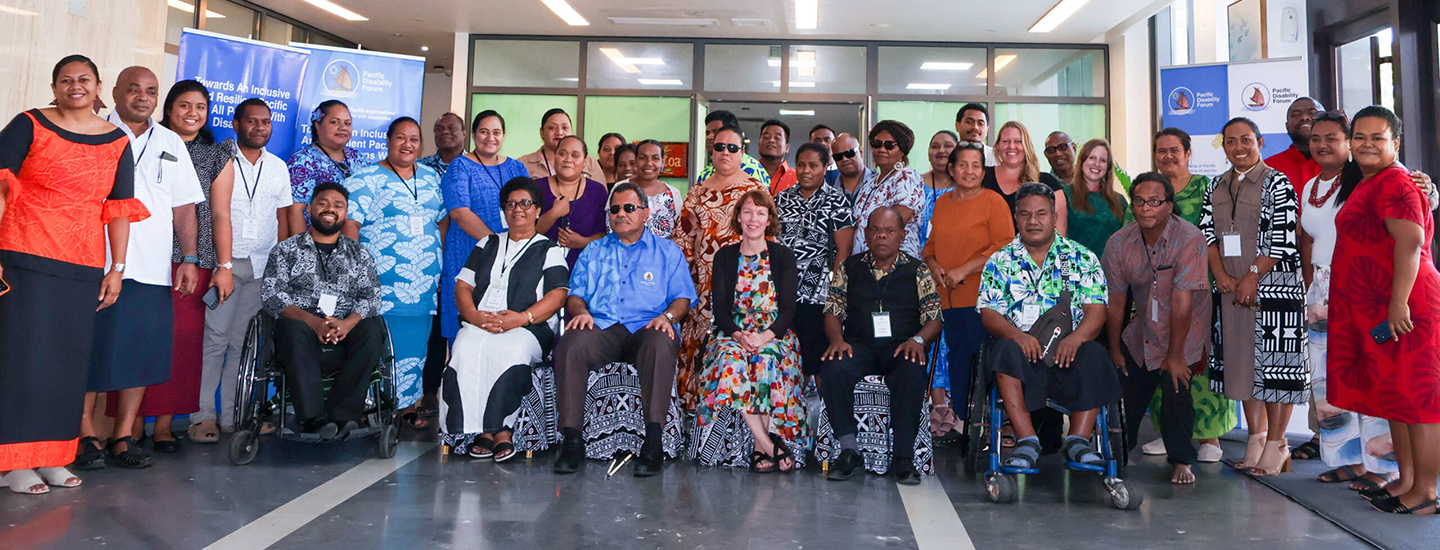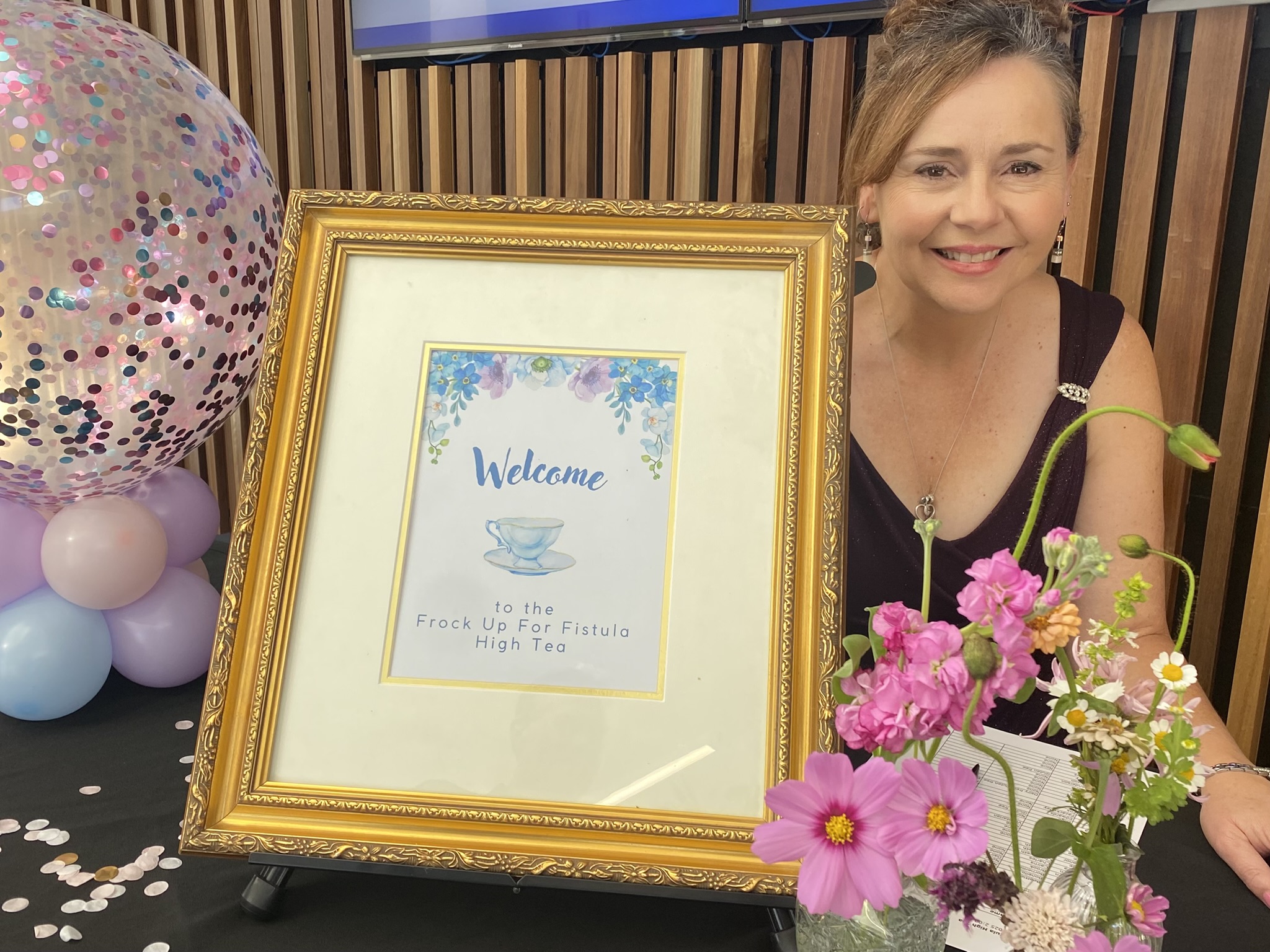Sign Language Rights for All
Pacific, Stories | June 25, 2024
“Sign Language Rights for All highlights that full enjoyment of linguistic rights is vital in facilitating the full inclusion of the Deaf Community within society.” Mr Colin Allen AM, outgoing President of the World Federation of the Deaf.
The highly respected Mr Colin Allen AM invited people to participate in the World Congress of the World Federation of the Deaf (WFD) recently held in Paris.
Over four days, 2400 participants from 137 countries joined this global event to exchange and further the mission of the WFD. Amongst the members were deaf associations, youth organisations and other participants from around the globe.
It was a great opportunity to reaffirm linguistic rights under the Universal Declaration of Human Rights by the UN. The United Nation’s Convention on the Rights of Persons with Disabilities supports the inclusion of sign language in education, culture, politics, social life and sport.
CBM Australia was represented at the Congress by Disability Inclusive Development advisor Jen Blyth. Jen felt that the Congress was a good opportunity to network with Deaf people globally, and particularly those from Africa and the Pacific.
Jen and Makarita (Jill) Miriyama, President of the Fiji Association of the Deaf, presented on deaf people in the Pacific and their access to sign language and education. Jill shared that it was such a great opportunity to remind people about the deaf people in the Pacific.
Their presentation discussed the unique barriers for deaf people in accessing sign language and education within the Pacific. It also explored the potential enablers at policy and programming levels which could turn this around.
In the Pacific, there is an estimated 1 million people who are deaf or hard of hearing. Many are isolated by the archipelago nature of the Pacific, stigma of deafness in the community, late diagnosis and lack of a recognised sign language which allows deaf people to communicate and for hearing people to become sign language interpreters.
Most Pacific countries do not have a recognised sign language. Many deaf people tend to learn sign language from hearing people working or volunteering in churches, schools or other services operated by foreigners. There are few deaf people teaching sign language.
This lack of language effects all areas of life including education. Deaf children may not be accepted in school and have higher dropout rates. A study funded by DFAT looked at deaf people in the Pacific and found that they’re not supported or able to access early intervention, sign language or education. If included into a mainstream school, deaf children are often supported by hearing, non-signing people. This makes their assistance ineffective, contributing to exclusion in the classroom.
There is a general lack of awareness from all levels of government and partnering organisations about the need for sign language and the linguistic rights of deaf people.
Deaf adults and children are under-represented by Disabled People’s Organisations (DPOs) at all levels across the Pacific, which means that advocacy efforts are often not inclusive or relevant to deaf people. This lack of representation means current advocacy efforts and gains in inclusive education for children with disabilities in the Pacific has left behind the needs of deaf children in the education system.
Jen and Jill called for recognition that the experience of deaf people in the Pacific is drastically different and unique to its culture, people and geography. More needs to be done to ensure the linguistic and human rights of deaf people in the Pacific are recognised and upheld.

This year the WFD is calling for stakeholders to sign the WFD charter calling for action to make the world more inclusive for deaf people. https://wfdeaf.org/charter/. You can join CBM Australia in signing the charter and recognising the rights of deaf people across the world.
Join CBM on 23 September to celebrate and learn more about Sign Language Rights for All on International Day of Sign Languages.
CBM Australia has previously highlighted the need for sign language in the Pacific in our Leave No One Behind Report.
https://www.cbm.org.au/stories/sign-language-rights-for-all
Related Stories

Easy Read your way through our evaluation report
At CBM Australia, we recognise that accessibility is not optional – it is a...

Growing Stronger Together: Supporting OPDs across the Pacific
CBM Australia is proud to partner with Pacific Disability Forum on the Growing Stronger...

Frock Up For Fistula: a High Tea of hope and healing
Something very special happened this Mother’s Day weekend. CBM Ambassadors Lyn Wake and Glenys...
